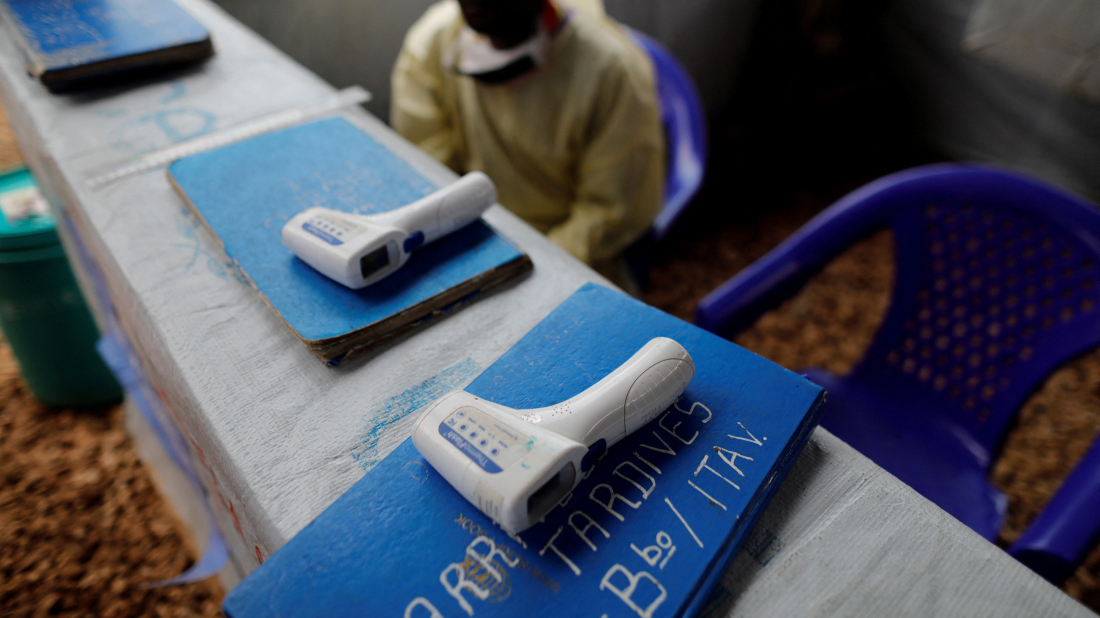What we know about Trump's Board of Peace
U.S. President Donald Trump’s 'Board of Peace' will hold its first leaders’ meeting on Thursday (19 February) in Washington, D.C., launching an in...

The World Health Organization has started vaccinating frontline health workers and contacts of Ebola patients in the Democratic Republic of Congo’s Kasai province, where the virus outbreak has already claimed 16 lives.
The outbreak, first declared in early September in the Bulape locality, is DR Congo’s first in three years and has left 16 dead, with 20 confirmed cases and 32 suspected cases, according to the health ministry in Kinshasa. The disease is caused by the Zaire species of the virus, which can persist in survivors for years.
An initial 400 doses of the Ervebo vaccine have been delivered from a national stockpile of 2,000 doses. The International Coordinating Group on Vaccine Provision has approved dispatch of an additional 45,000 doses to strengthen the vaccination campaign.
Limited access, scarce funding, and ongoing conflict in eastern DR Congo are hampering response efforts.
“Containing the outbreak is possible, but it will be challenging if we miss the window of opportunity,” WHO Programme Area Manager Patrick Otim said last week, urging more support for local authorities and partners.
The virus has the potential to spread beyond the epicentre, with one new case confirmed 70 km from Bulape.
WHO noted a moderate risk of transmission to neighbouring countries, particularly Angola. DR Congo’s dense forests, a natural Ebola reservoir, and the weakened healthcare system due to conflicts further complicate containment efforts.
The drumbeats have finally faded at the Marquês de Sapucaí, bringing the competitive phase of the Rio Carnival 2026 to a dazzling close. Over two marathon nights of spectacle, the twelve elite schools of the "Special Group" transformed the Sambadrome into a riot of colour.
Peru’s Congress has voted to censure and remove José Enrique Jeri Ore from his posts as President of Congress and acting President of the Republic, just four months into his tenure, citing undisclosed meetings with Chinese businessmen and alleged hiring irregularities.
France celebrated Olympic gold in the men’s biathlon relay in Anterselva on Tuesday (17 February), following a thrilling race marked by an electric atmosphere at the stadium.
Qarabağ FK are facing Newcastle United in the UEFA Champions League play-off round on Wednesday evening in Baku, in what will be the first UEFA competition meeting between the two clubs.
Iranian officials say more than 300 undocumented Afghan migrants have been rescued after being stranded in cold and rain near the border district of Taybad, in the northeastern Razavi Khorasan province.
Measles cases across Europe and Central Asia fell sharply in 2025 compared to the previous year but health officials have warned that the risk of fresh outbreaks remains unless vaccination gaps are urgently addressed.
A Florida university has become a new hotspot in a widening U.S. measles outbreak, with health officials confirming multiple infections and hospitalisations.
The World Health Organization has added the Nipah virus to its list of the world’s top 10 priority diseases, alongside COVID-19 and the Zika virus, warning that its epidemic potential highlights the global risk posed by fast-spreading outbreaks.
Belgian authorities are examining suspected cases of infants falling ill after consuming recalled Nestle baby formula, amid warnings that confirmed infections may be underestimated due to limited testing requirements.
Two Nipah infections involving health workers in India have triggered heightened screening across Southeast Asia as authorities move to prevent the high fatality virus from spreading beyond the country.
You can download the AnewZ application from Play Store and the App Store.

What is your opinion on this topic?
Leave the first comment